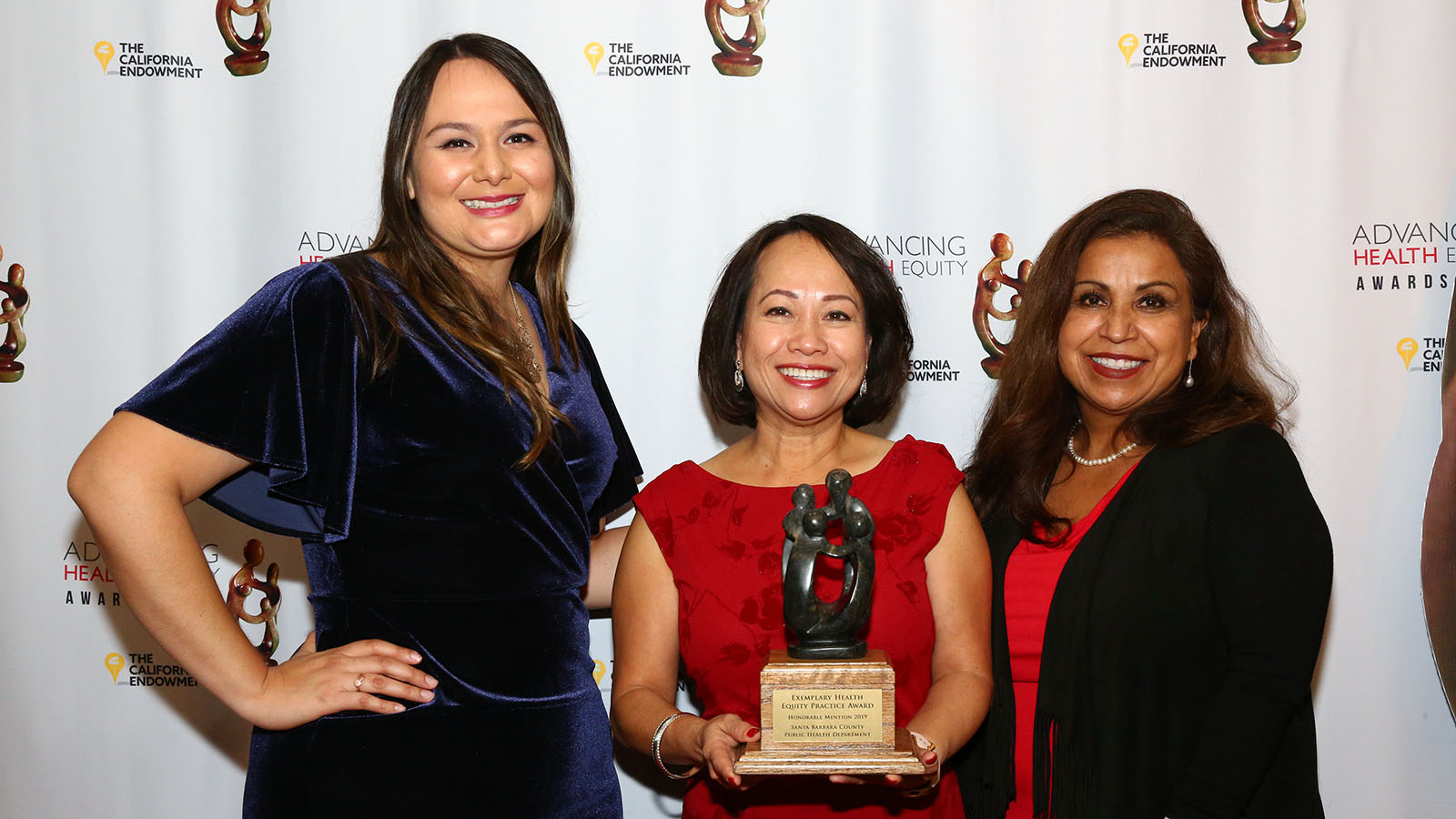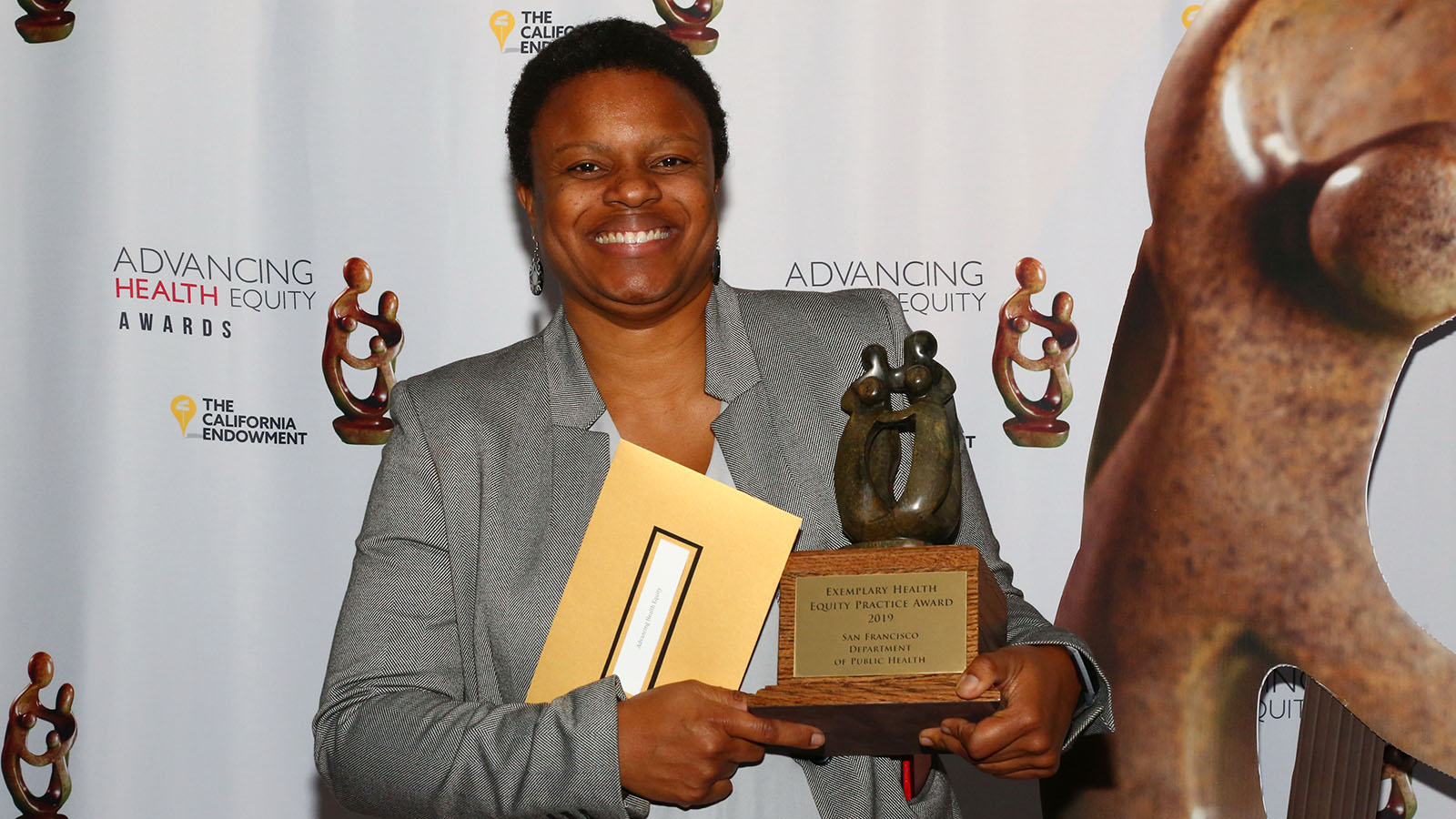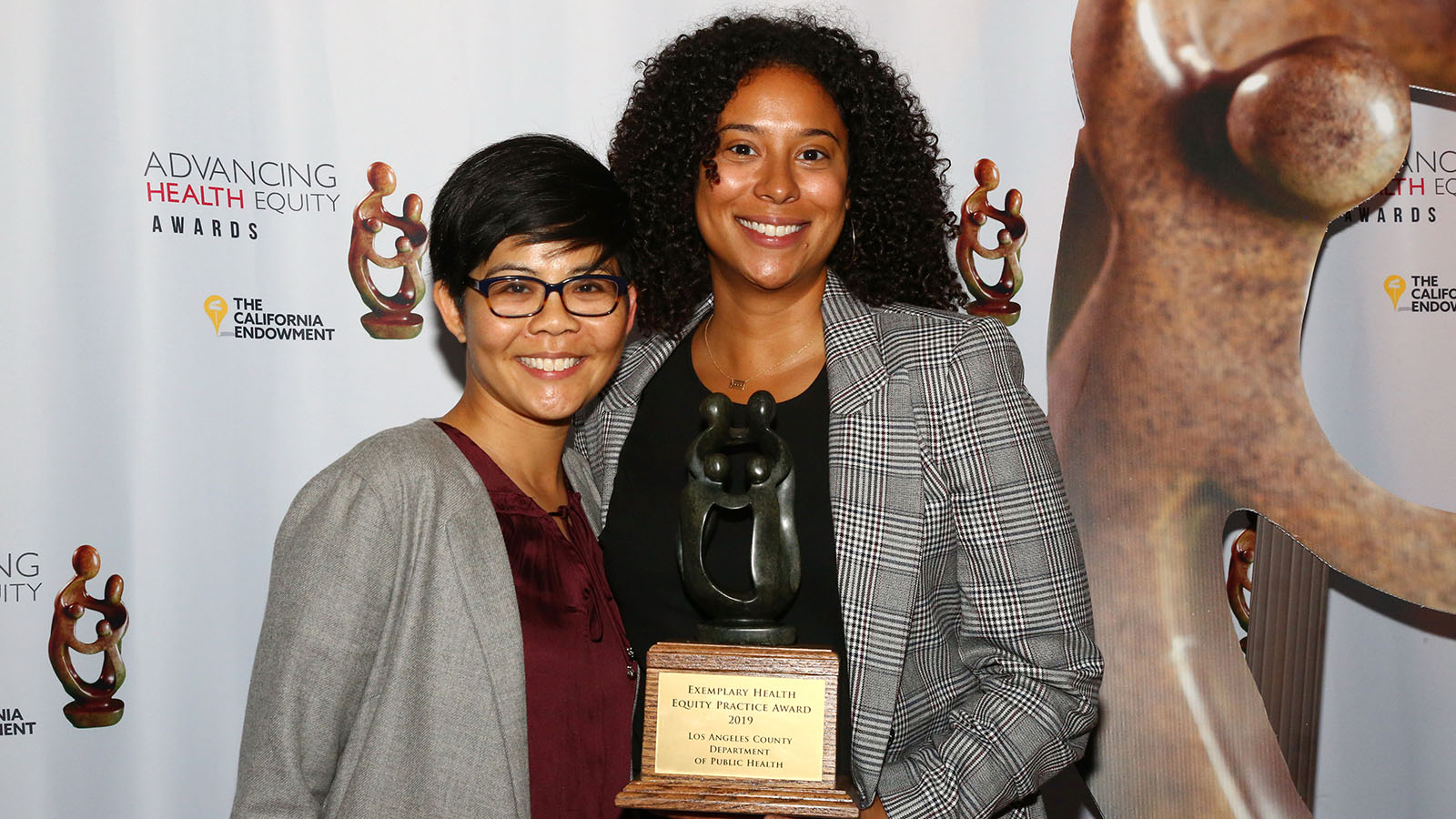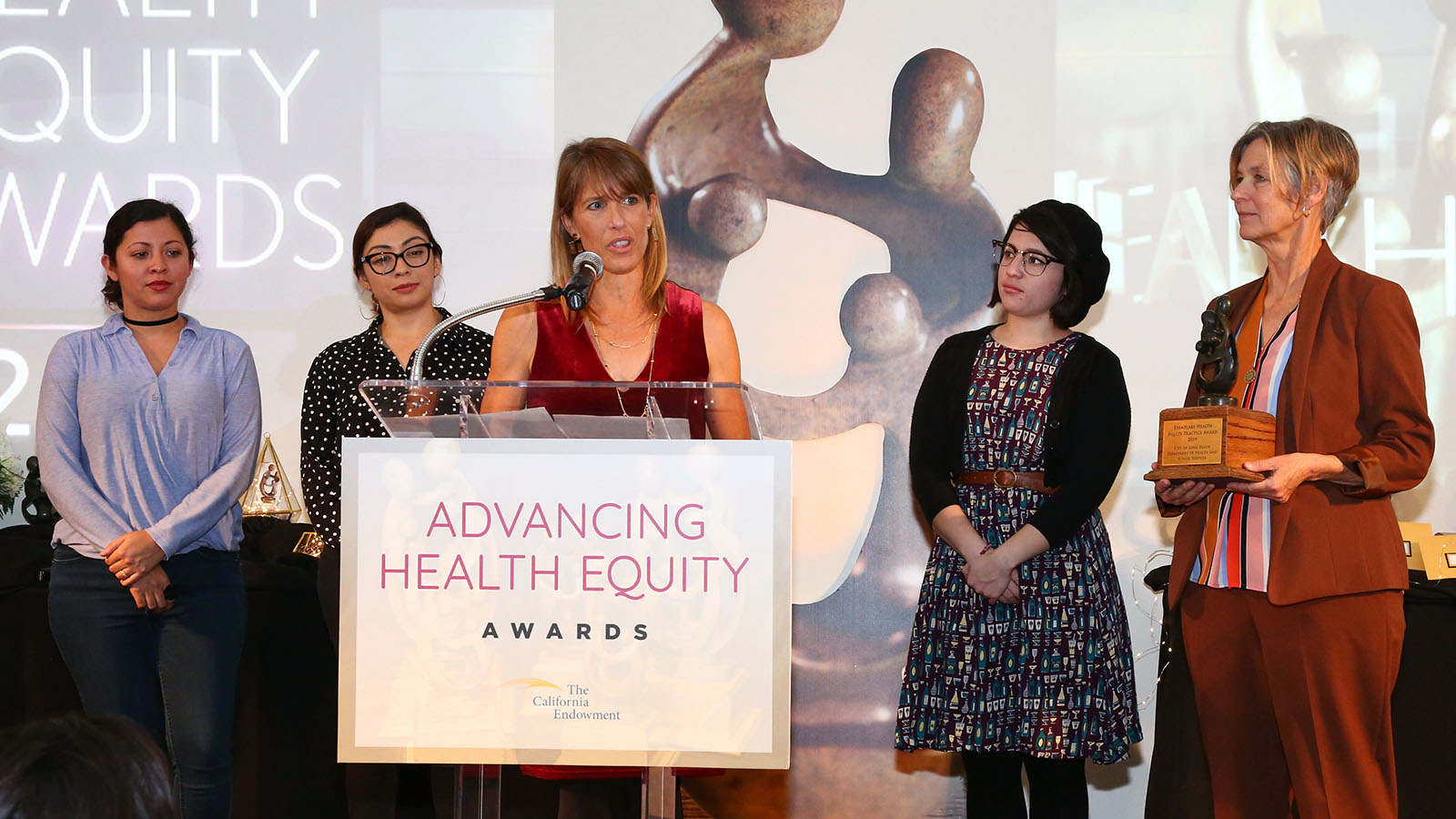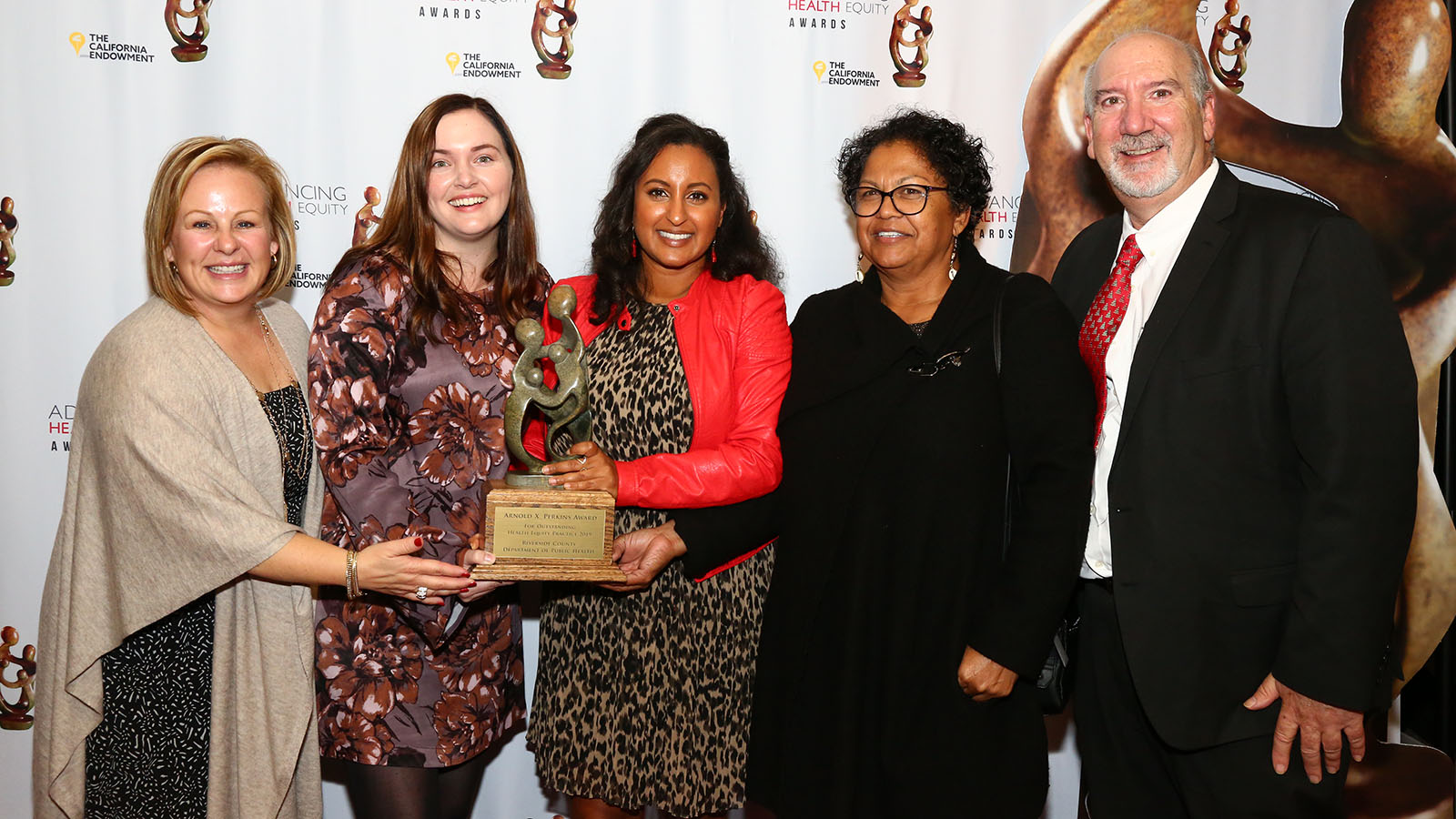The Advancing Health Equity Awards
Honoring local California public health departments who are exploring new territory and developing innovative strategies that build power to advance health equity.

The 2019 Health Equity Awards Celebration!
The 2019 Awards recognized and honored 8 local California public health departments for doing work that goes beyond the traditional scope of public health programs, and builds community power to advance equity by engaging in any one or more of the following domains:
- Building internal infastructure
- Working across government
- Fostering community partnerships
- Championing transformative change
To learn more about each domain visit The Health Equity Guide.
Why power building for health?
Over the last decades, public health departments have been moving their practice further and further upstream to address the root causes of health inequities. This evolution, from a focus on behaviors to a focus on the social determinants of health, has most recently led to health departments taking action on the root of the root causes: power.
Simply put, power, is a driver of our class, racial, and gender structures. Public health research shows us clearly that the degree of power and control we have as individuals and communities has a direct impact on our health outcomes. And that power concentrated in the hands of a few, with the inequality that follows, hurts the health of everyone in our society, of every racial group, class, gender, and identity.
The field of public health is in the exciting process of rapidly evolving our understanding of the role of power in sustaining the very systems that create health inequities and the role public health can—and should—play to transform those systems and shift power relations.
Only a transformed public health practice can effectively do this.
Simply put, power, is a driver of our class, racial, and gender structures. Public health research shows us clearly that the degree of power and control we have as individuals and communities has a direct impact on our health outcomes. And that power concentrated in the hands of a few, with the inequality that follows, hurts the health of everyone in our society, of every racial group, class, gender, and identity.
The field of public health is in the exciting process of rapidly evolving our understanding of the role of power in sustaining the very systems that create health inequities and the role public health can—and should—play to transform those systems and shift power relations.
Only a transformed public health practice can effectively do this.


